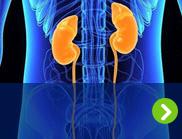Become an Organ Donor
You have the ability to save a life—or even several lives—by being an organ and tissue donor. And you can do this in two ways:
- Designate on your driver’s license that you wish to be an organ donor upon your death
- Become a living organ donor by donating one of your kidneys
Why should you become an organ donor?
Think about this:
- Every 10 minutes, another name is added to the waiting list for an organ to be used for a lifesaving transplant
- Today, more than 118,000 Americans are waiting for a lifesaving organ transplant
- Tragically, every day 22 people die while awaiting a transplant
However, by simply indicating on your driver’s license that you wish to be an organ donor, in the event of your death:
- Three to four patients who are dying from heart, liver or lung failure could be saved
- A kidney transplant could free two patients from dialysis, treatments that can take 12 to 15 hours a week
- A pancreas transplant could free one patient from daily insulin injections
- Bone transplants could help numerous patients save limbs threatened by cancer or severe trauma
- Donated skin could protect numerous burn victims from infection and pain
- Life-enhancing tissue transplants could benefit numerous others
And if you were to become a living organ donor, you could help ensure a healthier, longer life for someone suffering from end-stage kidney or liver disease—here and now. Learn more about being a living organ donor.
UMass Memorial is a 7-time Medal of Honor recipient for organ donation
Here at UMass Memorial, we’re committed to increasing organ donation rates. In fact, we’ve been awarded the distinguished Medal of Honor seven times by the U.S. Department of Health and Human Services for our success in doing so.
But the real reward comes from knowing the impact this has on the lives of people who are able to obtain a lifesaving organ transplant. You can know this incomparable feeling, too—by becoming an organ donor.
How to give the gift of life
To become an organ donor in the event of your death, simply indicate your desire to do so the next time you review your driver’s license (if you are at least 18 years old, next-of-kin consent isn’t needed).
For more information on organ and tissue donation, please contact New England Donor Services (formerly the New England Organ Bank).
Visit our deceased organ donation Health Watch.






 Exclusive Health Care Provider for the Worcester Red Sox.
Exclusive Health Care Provider for the Worcester Red Sox.